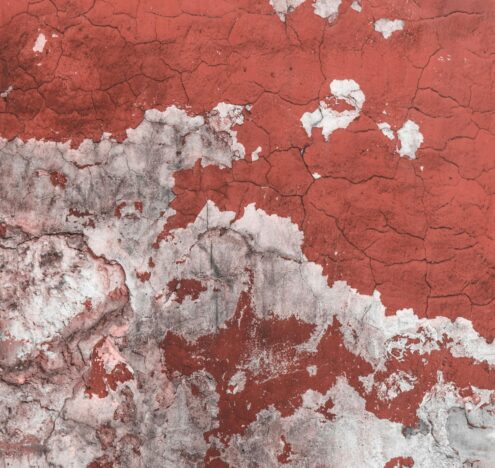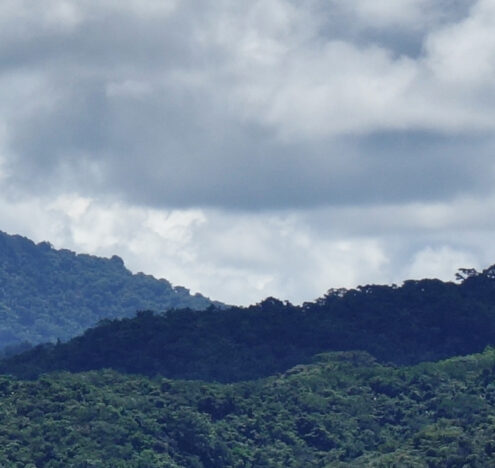Nigeria, which in September this year suffered the worst floods it has seen in a decade, is among the hundreds of nations gathered at the resort town of Sharm El-Sheikh in Egypt for the 2022 UN Climate Change Conference or COP27 to review and renew global commitments to reduce greenhouse gas emissions.
This conference is taking place at a historical turning point when industrialized countries of the West — in an attempt to wean themselves off dependence on Russian gas — are reversing the global commitment to limit rising global temperatures to 1.5 degrees Celsius while scrambling for alternative fossil fuel sources from an African continent already in the throes of climate catastrophe. For, while climate change impacts are broadly felt across ecosystems and economies, communities in Africa that rely on the informal economy, subsistence-farming, and extractive practices, are particularly vulnerable due to their connection to land resources and the fact that these communities already suffer gross energy poverty and live on the frontlines of pollution, insecurity, and conflicts.
Against this background, it would seem that the choice of Egypt as the venue for the climate conference indicates a recognition of Africa’s centrality to the climate discourse. But even if this is the case, it will not mean much unless the discussions at COP27 lead to meaningful actions. Besides the floods in Nigeria, countries like Kenya, Somalia, and Ethiopia have been battered by one of the worst droughts in decades, which is putting 22 million people, including 10 million children, at risk of starvation. According to a new report by the Institute for Economics and Peace, 37 out of 52 countries in sub-Saharan Africa are suffering from “extremely high food insecurity, and a staggering 206 million people at extreme risk of water insecurity.”
This will have grave implications for human security and the fight against terror in a region riven by jihadism, tribal strife, and conflict between herdsmen and farmers over control of water and land. In Nigeria alone, about 25 million people are at risk of an acute food crisis due to the floods. This is in addition to the enormous destruction of homes, farmlands, bridges, roads, and infrastructure.
Nigeria’s Floods
As many as 33 out of Nigeria’s 36 states have been affected by the monumental floods — an area equal to the combined landmass of France and Belgium. About 392,399 hectares of farmland, hundreds of miles of roads, and about 200,000 homes were partly or wholly destroyed. Olam Nigeria, which produces a quarter of Nigeria’s rice, lost about 10,000 hectares of its farmlands to the flooding, in damages estimated at about $15 million. And last month, the Nigeria Liquefied Natural Gas Company declared force majeure, citing the disruption of the gas supply due to widespread flooding.
In an op-ed last week, Nigerian President Muhammadu Buhari rightly blamed Western countries and the “mess their own industries caused” for the flooding and catastrophic climate crisis across Africa. He argued that Africa is frustrated with Western hypocrisy and its inability to take responsibility, especially the repeated failure of the governments of wealthy countries to meet their commitments to the $100 billion fund for climate adaptation and mitigation in the developing world, committed at COP15 in 2009. But, “Africa’s inept leaders are also guilty of hypocrisy towards climate change,” according to Peluola Adewale, an activist with Nigeria’s pro-labor Joint Action Front. Nigerian authorities had months of forewarning of the impending flood crisis but failed to act.
Africa and developing countries need aid and climate reparation to finance the adaptability of communities at the frontlines of the climate catastrophe.
Nonetheless, the head of Nigeria’s delegation to COP27, Mohammed Abdullahi has said the country will push for “loss and damage” for the floods. This aligns with the key issues outlined in the “African Common Position on Energy Access and Just Energy Transition,” an African Union amendment. Priorities include climate financing, the use of gas as a transitional energy source, and the demand for loss and damage payments. Loss and damage reparations are essentially costs associated with climate change that adaptation and mitigation as framed in the UN Framework Convention on Climate Change — the leading enviromental treaty on climate change — does not address.
Already vast populations not only lack access to resources for adaptation and mitigation but are suffering psychological trauma, the irreversible loss of human lives, and territorial, ecological, and economic displacements, according to a new report by The Corporate Accountability and Public Participation Africa (CAPPA), a pan-African organization. All of these severe consequences of climate change stretch beyond environmental challenges and are beyond the scope of existing funds for adaptation. The floods in Nigeria and Pakistan, drought in the Horn of Africa, the shrinking of Lake Chad, gas flaring, and the historical pollution of waterways and rivers in Nigeria’s Niger Delta due to oil companies’ activities “fall within the range of climate catastrophes that have caused irreparable losses for which only reparations can address,” Zikora Ibeh, CAPPA’s Research and Policy officer, said. Ibeh is currently in Sharm El-Sheikh, together with a team of climate campaigners to push for reparations and climate justice for Africa.
Now as COP27 comes towards a close, there has been some progress toward the satisfaction of demands put forward by developing and vulnerable countries. Some of the early victories include the adoption of “loss and damage” into the agenda at the procedural opening on Sunday, and a measure that countries affected by natural disasters will be able to pause their debt payments for a maximum of two years, freeing up funds for disaster relief. Under a scheme drawn up by international financial institutions including the International Monetary Fund, World Bank, and private sector lenders, vulnerable countries will also be able to add climate-resilient debt clauses into future bonds they offer on international markets. Furthermore, over $1 billion in adaptation pledges across sectors have been made by different states and non-state actors at the ongoing negotiation.
Africa Needs More
While these measures are welcome, they barely scratch the surface. Africa and developing countries need aid and climate reparation to finance the adaptability of communities at the frontlines of the climate catastrophe. There is also a need for rapid decarbonization — the reduction of carbon footprints through lowering emissions and stopping fossil fuel burning — and investment in renewables. This goal is incompatible with solutions some parties are promoting, such as carbon emissions trading or carbon offset — the idea that companies should pay for credits that match their carbon footprint with reductions achieved elsewhere, especially poorer countries. As a group of activists argued recently, the climate crisis cannot be solved “by shifting air from one part of the world to another.”
Unfortunately, while negotiations progress in Sharm El-Sheikh, a number of massive carbon projects supported by Western countries, multinational institutions, and banks continue apace in Africa. These include the over $18 billion Dangote refinery and petrochemicals project in flood-ravaged Nigeria and the East African Crude Oil Pipeline, which is expected to transport oil produced from Uganda’s Lake Albert oil fields to the port of Tanga in Tanzania where the oil will then be sold onwards to world markets.
Justifying these projects, African leaders argue that Africa should be allowed to develop its economy using low-carbon fuels like gas, since countries in the Global North built their economies on the exploitation of fossil fuels, slavery, and colonialism. Indeed, this argument for African economic sovereignty is a cornerstone of the “African Common Position on Energy Access and Transition” that African leaders plan to adopt at COP27. But the argument does not add up.
African companies control only 33% of projected oil and gas production in Africa while “the rest is controlled by companies in the Global North,” according to Richard Munang, an environment and development policy expert. This makes it highly unlikely that a significant share of the revenues from oil and gas sales will remain in Africa to fund local development and climate action solutions. At the same time, less than 50% of African countries are known to actually have proven oil and gas reserves. In fact, only 12 countries on the continent have significant amounts, so “if natural gas exploration were to be a policy direction and priority, then over 50% of the countries would be excluded from these projected developments.”
At a time when the overriding need is to stop fossil fuel burning and leave the oil in the ground, activists argue that any new fossil fuel project is a mockery of the thousands who have died and millions displaced or facing hunger and conflicts in Africa and developing countries as a result of climate change. Especially since Africa has enormous potential for renewable energy sources, which remain scarcely tapped, the expansion of fossil fuel burning demonstrates the intrinsic irrationality of the global economic architecture. Above all, it demonstrates how and why we cannot rely on market forces to carve a just and sustainable pathway for the planet toward full decarbonization.
Sadly, it is not only the West that is trying to greenwash false market solutions as genuine climate actions. On Nov. 8, 2022, African leaders launched the new Africa Carbon Markets Initiative at COP27 to support the growth of carbon credits production, create jobs, and protect biodiversity in Africa. Kenya, Malawi, Gabon, Nigeria, and Togo have declared support for Africa Carbon Markets Initiative. But as climate activists argue, this is another distraction from the real solution to climate change.
“It would seem African leaders are determined not to learn from their mistakes of the past. For a fictional initiative that keeps Africa locked in the fossil fuels trap to be conceived as at a time that Africa is on the grip of climate crisis is totally inconceivable and unacceptable,” lamented Kwami Kpondzo, an activist with Friends of the Earth Togo.
What Would It Take?
At the same time, the few concessions already won and the additional ones that may come in the closing days of COP27 are likely to come up against the battering ram of the West whose appetite for climate action appears to have been dampened by economic and national security considerations due to meteoric rise in gas prices across Europe.
Even if a new pledge to support developing countries is agreed upon at the conference, there is no guarantee this would be implemented with any more vigor than the previous commitments. To date, only $80 billion of the $100 billion per annum commitment by developed countries for developing countries by 2020 has been met; of this, only around $20 billion was provided to Africa over 2016-2019. Meanwhile, the cost of mitigation and adaptation continues to rise as the crisis worsens. Now the Africa Group of Negotiators says as much as $1.3 trillion a year is required in climate finance from 2025 to begin to address the crisis.
Unfortunately, the COP has no power to enforce its decisions and resolutions. All it relies on is moral persuasion, which is insufficient weaponry in the face of the enormity of the climate crises and the fractious nature of the world powers. Given this impotence, it seems credible that it would take at best, a global movement that would accept no excuses, or at worst, a massive climate-driven catastrophe on the scale of Chernobyl or worse, to change the hearts and minds of global powers.
But it does not have to come to this. The remaining days of COP27 offer an opportunity for global leaders to step up to address the climate crisis for the benefit of all of us and our planet.





















